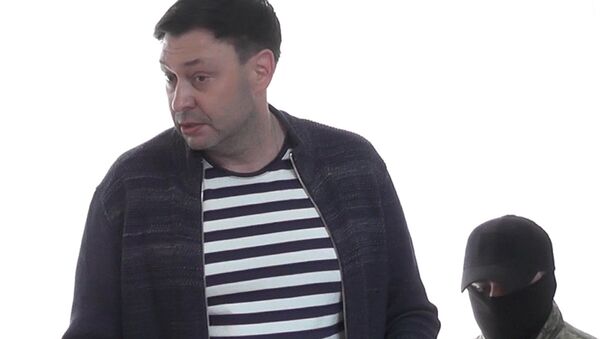Is Criticizing the Government Equal to Treason?
Vasily Muravitsky has been working as a journalist since he was 16 and for the last 3 years has been working for the Russian news agency Rossiya Segodnya. He mainly focuses on political events in Ukraine, has harshly criticized the policy conducted by the government and has called for a peaceful resolution to the conflict in eastern Ukraine.
READ MORE: UN OHCHR Says Examining Detention of RIA Novosti Ukraine Journalist in Kiev
On August 1, 2017, the SBU arrested him in front of his wife while she was holding their newborn child (she later suffered personal health problems as a result of the shock). He was accused of treason, in spite of never having had access to classified information or secret objects; of attempting to disrupt the territorial integrity of Ukraine, perhaps by writing articles; of fueling ethnic hatred, despite his advocacy for a peaceful solution to the Ukrainian crisis; and of terrorism.
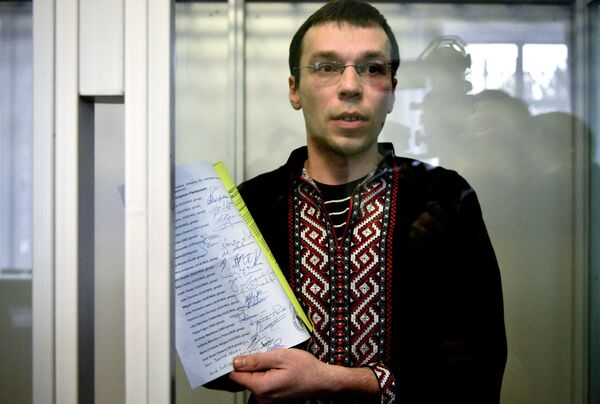
The Ukrainian prosecutor's office has been working on the case since his arrest, but has so far presented no evidence of Muravitsky conducting any of the alleged malicious activities. Several international organizations, such as Amnesty International and the International Society on Human Rights, have on multiple occasions during the case remarked that the Ukrainian government may be using it to pressure journalists in the country and that Ukraine may have violated certain provisions of the Human Rights Convention.
Highlighting Events in the War Makes You a Terrorist Supporter
Dmitry Vasilets and Yevgeny Timonin were arrested in 2015 accused of "supporting terrorist organization(s)" and in 2017 sentenced to 9 years of imprisonment. The SBU arrested the two for organizing the YouTube channel Novorossia TV, devoted to objectively highlighting events taking place in eastern Ukraine without and urging the sides to reach a peaceful solution.
READ MORE: Ukrainian Court Sentences Two Journalists to Nine Years in Prison
In February, 2018, as a result of a successful appeal, they were released with the guilty verdict currently being reviewed. Both are currently under house arrest.
'We Are Under Unprecedented Pressure From the Government'
Some Ukrainian journalists, however, have managed to escape the grasp of the SBU, but their lives are far from perfect, as they have essentially been forced out from their homeland. One of them is Igor Guzhva, chief editor of the Strana.ua media outlet, who has also harshly criticized the Ukrainian government which came to power after the events on Maidan.
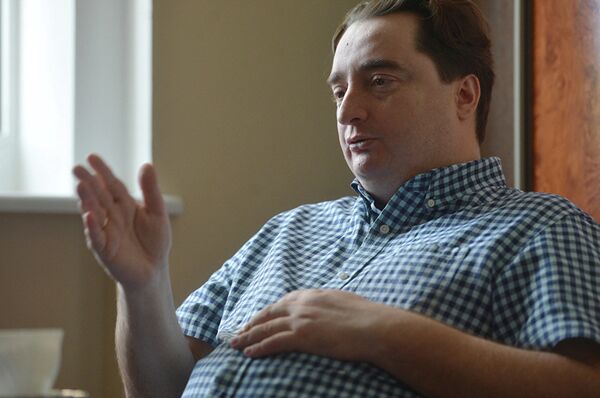
"We are under unprecedented pressure from the government. There are at least five cases against me and some [journalists] are facing even more," he said in an open latter.
Guzhva fled from Ukraine in February, 2018 and sought political asylum in Austria, after he began to receive death threats.
Peace is Not an Option
A journalist in Ukraine can get in trouble even if they are not criticizing the government, but just want their country to reach peace. Alexander Medinsky, a journalist and a former member of the armed forces, who participated in operations against the self-proclaimed People's Republics, has advocated for stopping the killing in the eastern Ukraine. For having done this, he was reportedly abducted and tortured, presumably by one of the multiple Ukrainian nationalist organizations. After surviving the ordeal, he applied for political asylum in the EU.
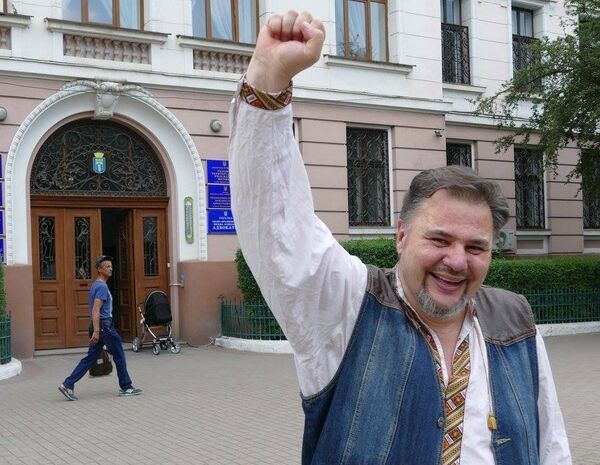
Another peace advocate, Ruslan Kotsaba, used to review the military actions of the Ukrainian Armed Forces in the East and in 2015 called on all Ukrainians to evade the mobilization, calling the military operation a "deliberate massacre of fellow countrymen and women, who live in the East." For this, the SBU accused him of treason and obstruction of military activities. His trial is still ongoing.
READ MORE: OSCE Urges Ukraine to Abstain From Detaining Foreign Journalists
3 Years Since Journalist Slain, Killer Still Not Found. How Come, Ukraine?
Oles Buzina was a well-known writer and journalist who opposed fueling the ethnic divide in the country, as well as political censorship, until he was murdered in Kiev in 2015. He succeeded in getting through multiple suits filed against him for his views and books, and even an attack on the doorstep of the court, but was ultimately shot dead near his home.
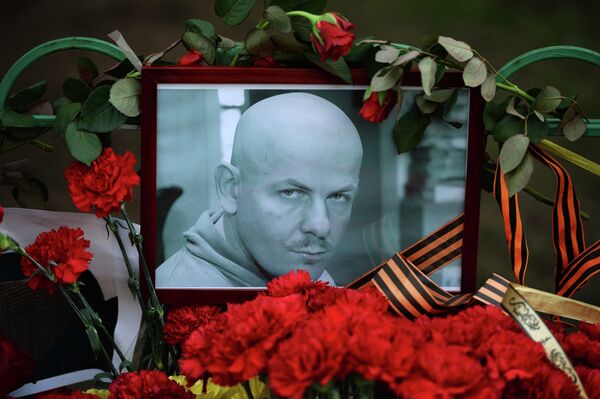
The incident, which happened 3 years ago, is still being investigated, with the latest suspect having been released a year ago. So far, the Ukrainian investigators haven't found any new evidence or suspects. His representative, Renat Kuzmin, has expressed skepticism about the eagerness of the general prosecutor's office to find the killer.

